
We all know that medical malpractice is a serious issue, but it can be hard to know when you need to take legal action.
Medical malpractice can have devastating consequences for patients and their families. It is essential to know when can become a victim of medical malpractice, so you can pursue appropriate action for your case.
This blog will discuss medical malpractice cases and examples of medical malpractice where you may need a lawyer. If you or a loved one has suffered due to the medical negligence of a doctor or hospital, please do not hesitate to contact us for a free case evaluation from one of our medical malpractice attorneys.
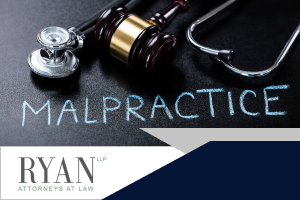
Various situations can lead to a medical malpractice case. This can include when doctors fail to inform patients that a certain prescribed medication may cause heart failure or a doctor left surgical scissors in the patient's stomach during an operation.
Here are some examples of the most common medical malpractice claims:
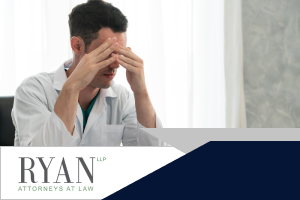
Medical caregivers have responsibilities to their patients. Negligence of the patient's needs means failure to treat, which also violates the standards of care. And this is also a frequent and common cause of malpractice claims.
Here are common examples of failure to treat:
Failure to treat can also be caused when a doctor has too many patients to handle. But for this issue, the help of a professional is needed to acquire the patient's resources so they can be directed to another caregiver for better treatment.

Missed or delayed diagnosis means wrong or late diagnosis. And this can lead to worsened patients' conditions because they didn't receive the treatment they need on time.
A late or wrong diagnosis may result in a patient not receiving timely treatment or receiving unnecessary treatments. And a misdiagnosis often occurs when a doctor or physician fails to do the following:
Other medical errors can lead to confusion regarding illness identification, such as:
Inaccurate or untimely diagnosis can have life or death outcomes. A medical professional who is irresponsible or reckless in doing the necessary process must be held liable.
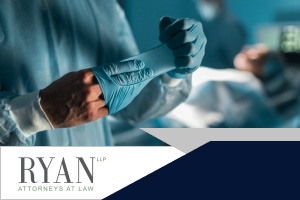
Whether a patient chooses an elective surgery or needs emergency medical help, every operating room should be equipped with sufficient medical professionals to give them the necessary care.
Some of the most common surgical errors include:
Doctors, some medical professionals, and nurses must properly communicate and inform the patient's vital information to each other every surgery. Doing so will avoid any errors or malpractices that may happen due to a lack of communication.

Faults involving prescription drugs can lead to an allergic reaction or a patient's death.
Some common types of prescription drug mistakes include the following:
Sometimes, a patient can receive the wrong medicine due to a negligent pharmacist who made the mistake of filling in the wrong doctor's prescription. They can be held liable for causing the patient's harm.
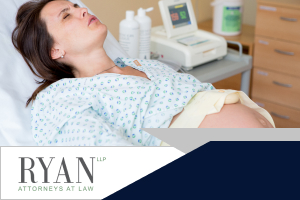
Injuries that happen on, before, or after childbirth can have serious injuries too. Here are some causes of birth injuries:
If the baby's mother did not receive notice of her prenatal health conditions before birth, this could be her evidence and grounds for a medical malpractice case.
Doctors failing to inform the mother that her baby has the condition of down syndrome is also considered poor practice. The mother could file a medical malpractice suit for that too.

A doctor has a duty to warn their patients of any possible risks that may happen from a procedure or course of treatment. And this sworn duty is known as 'the duty of informed consent. If patients, once duly informed of possible risks, would have chosen not to proceed with the procedure, doctors may be liable for medical malpractice if patients are harmed by the procedure.
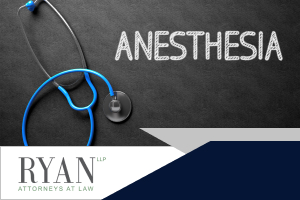
Reactions or problems to anesthesia due to an anesthesiologist failing to give the right amount of anesthesia to a patient can result in brain damage and other critical health issues. Such carelessness can also be filed as a case for medical malpractice.
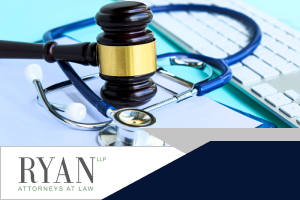
To show that medical malpractice happened, you must show the following things for your medical malpractice claim:
Negligence is the failure to perform with the same amount of care that a reasonable medical professional would have acted in the same situation. Negligence is the primary ground for a medical malpractice claim. To show that medical malpractice happened, you must show all of the following:
You have to show your doctor-patient relationship with the doctor you plan to sue. This will show evidence that you indeed hired a doctor and that doctor legally agreed to be hired. If you began seeing a doctor and he's treating you, it is easy to show that a doctor-patient relationship existed.

If you were unhappy with your doctor's treatment, that doesn't mean you can sue them for medical malpractice. A doctor's carelessness must be related to your treatment or diagnosis.
To sue your doctor for medical malpractice, proof of suffered harm must be shown in a way that a competent doctor would not do. The doctor's care is not always required to be the best among the rest. But a basic act of carefulness, diagnosis, and skills must be executed.
Almost all states require the patient to present a medical expert who can discuss the suitable medical standard of care. The representative will show that the defendant (doctor/medical professional) has diverged from the medical standard.
Since most medical malpractice cases include patients who are already sick or injured, doctors are often questioned about what they did if they are being negligent or not, which causes harm to the patient.
An example would be: if a patient dies after treatment for heart disease, and the doctor is truly negligent. It can be very hard to prove that the cause of death is the doctor's negligence and not the disease itself. For such a matter, the patient must have a medical expert testify that the doctor's negligence is the cause of serious injury.
Even if it is evident that the doctor or physician performed below the standards in their field, patients couldn't sue for medical malpractice if they didn't suffer any harm. The following are examples of the types of harm patients can sue for:

If you believe that you have a medical malpractice case, it is important to speak with an experienced medical malpractice attorney as soon as possible. They can help you file a medical malpractice lawsuit if you have a valid case. Medical malpractice cases can be complex and require the expertise of a qualified medical malpractice attorney.
The attorneys at Ryan LLP Law Firm have over 50 years of combined experience in the areas of medical malpractice, wrongful death litigation, and personal injury. We have represented thousands of clients in the past. Here's how we can help:
Contact us at (216) 600-0308 to receive a free consultation from our medical malpractice lawyers protected by an attorney-client relationship. You can also fill out our online contact form, and we'll get back to you shortly.